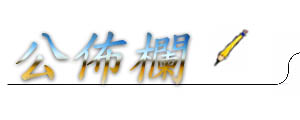當代釋經學的危機06 聲音檔
我們繼續來看,Greg Beale對Peter Enns的這本書的評論。現在我們來到Beale的觀點:
II. 「從Enns的道成肉身模式來看聖經的默示」(續)
(Enns’s Incarnational Model for Understanding Biblical Inspiration)
1. 「Enns的道成肉身的模式,特別在處理歷史和神話的方面」(續)
(Enns’s incarnational model in relation to “history” and “myth.”)
Peter Enns說,福音派人士一直以來都沒有正視:這些古近東的發現,對福音派聖經論的涵義。Beale下面就列出福音派五種回應的方法,是Enns沒有交代的:
「這裡很重要的一件事情,就是此時此刻要提出:第一,有些福音派的學者們,看到所謂古近東的神話與聖經的相似點,就做了一些的爭辯,(如同一些非福音派的學者也會這樣做的)」,不過福音派的學者們是從護教爭辯的角度來處理這些古近東的神話與聖經的相似點,「或者直接的指責異教的宗教信仰和他們的做法。」
(It is important to remark at this point that (1) some evangelical scholars have seen the presence of similarities to supposed ANE myth due to polemical intentions (as have some non-evangelical scholars) or to direct repudiation of pagan religious beliefs and practices;)
福音派沒有不正視。甚至這第一種福音派人士的做法,首先就認為我們需要為真道爭辯的。
「第二,異教的作者和聖經的作者都反映了上帝的普遍啟示,但只有聖經的作者是正確的解釋了普遍啟示。」
((2) and others to a reflection of general revelation by both pagan and biblical writers, and only rightly interpreted by the latter;)
異教的作者也有普遍啟示,但他們沒有正確地去解釋。聖經的作者有普遍啟示,但是他們正確的解釋了這普遍啟示,比方:靈界裡面就只有一位真神。
「第三,古近東的神話和舊約聖經的相似點,反映出有一個很古老的傳統。」這不論是口頭的或書寫的傳統,是比異教和聖經的作者都更早。「究竟這更老的傳統有沒有人能夠去證明呢?不可能的。(像創世記第一章的創造)。但是這更早的傳統是來自一個更早的、古老的、從神而來的、純真的啟示。」再來,神首先啟示,然後有一個傳統,這個傳統就引致了後來的異教和聖經的作者。「這個最古老的啟示和傳統到了異教的文獻就搞亂了,可是聖經的作者卻用可靠的方法去見證這最早的、純正的啟示和更古老的傳統。」
((3) in addition, still others have attributed purported ANE mythical parallels in the OT to a common reflection of ancient tradition, the sources of which precede both the pagan and biblical writers, and the historicity of which has no independent human verification (like the creation in Genesis 1), but is ultimately based on an earlier, ancient divinely pristine revelation that became garbled in the pagan context and reliably witnessed to by the scriptural writer.)
這是第三個福音派的學者的觀點。第二,是二者都有普遍啟示。第三,是有啟示、有傳統。從傳統,引致異教有誤的神話和聖經無誤的啟示。
「第四,另一個觀點,上帝的啟示不是每個地方都反對古近東的觀點的。很多時候會正面的來使用古近東的觀點。但是仍然有神的特殊啟示在很重要的地方修改了這些古近東的觀點的。 比如說:古近東的觀點可能影響了以色列的會幕和聖殿所帶來的聖地神學」,就是一個地方有神特別的旨意和同在,「這很可能是來自古近東的概念的。 (例如:會幕和聖殿是朝東的,一些敬拜所用的東西放的位置,從聖所到至聖所一步一步地進去,一些甚麼人、甚麼時候才可以進到聖所的規矩…等等,可能聖經有受古近東的觀點的影響。)」
(4) Yet another view is that revelation did not always counter ANE concepts, but often used them in productive ways, though still revised in significant manner by special revelation. For example, ANE concepts may have helped give shape to the theology of sacred space in the building of Israel’s tabernacle and temple. (e.g. the eastward orientation, the placement of important cultic objects, the designation of areas of increasing holiness, the rules for access to the Holy Place and Holy of Holies, etc.)
我們講了四種的觀點:第一是反駁異教的;第二是大家都來自普遍啟示,但只有聖經做了正確的解釋;第三是都來自一個更早的傳統,但這傳統到異教就搞亂了,只有到了聖經作者手裡才正確的記載和見證下來;第四是有的時候聖經會正面的採用一些古近東的觀點,不過很多時候會修改的。
「當然,還有第五個觀點,這跟前面的四個觀點形成一個對比,就是:聖經的作者沒有意識到他們收納了這些神話似的世界觀,就把它們重複複製在他們的寫作中。他們認為他們是可靠的描述現實的世界,而這些就是在過去真實的世界中所發生的事件(創造的記載和洪水的氾濫等),因為這些聖經的作者就是這社會構造裡現實的一個部分。」
(Of course, another option, in contrast to the preceding four views, is that the biblical writers absorbed mythical worldviews unconsciously, reproduced them in their writings, and believed them to be reliable descriptions of the real world and events occurring in the past real world (creation account, flood narrative, etc.) because they were part of their socially constructed reality.)
這個就是世界觀,這世界觀是人造出來的。這是後現代的一個說法。
再來一次,第五種的觀點就是:聖經的作者沒有意識到他們已經接收了神話的世界觀,就按照神話的方式來寫聖經。他們認為他們是可靠的描述過去和現在所發生的事。為甚麼他們認為他們是可靠的?因為他們就是在那神話的世界裡生活的。
「上帝的默示並沒有限制文化、神話影響到聖經的作者。」
(Divine inspiration did not limit such cultural, mythical influence.)
第五個觀點是:神的默示沒有限制了文化或神話到聖經作者的影響。
現在Beale既然提出的福音派的五個觀點,就開始向Peter Enns提出兩個問題,第一個:
「Enns是不是採用第五個觀點呢?Enns用第五個觀點是不是聖經的作者沒有意識到他們用了神話,但是Enns同時堅持神是用神話來傳遞真理的。」
(Does Enns agree with this latter view, still nonetheless contending that God used myths to convey truth?)
Beale猜想,Enns是不是採用第五個觀點,再加上,神是用神話來傳遞真理的?這是Enns立場的第一個可能性。
第二個Beale猜想:
「Enns是不是相信這些舊約神話的記載本身沒有甚麼本質上的歷史性」,就是感覺上不是在講歷史,不是在講過去。「所以他用神話這個字,就是一般的用法」,就是神話不是真實的,「的這個意思呢?」
(Does Enns believe that these OT “mythical accounts” do not contain essential historicity, so that he uses the word “myth” with its normal meaning?)
Beale問兩個問題:第一個,Enns是不是採用第五個觀點,再加上,神是用神話來傳遞真理的?第二個,Enns是不是認為舊約神話的本質上沒有歷史性?所以Enns認為的神話,就是一般人所認為的神話的定義:不符合事實的。
「我的書評,我的觀點是:就我分析Enns的觀點,有的時候比較像第一、二、三、四種,但事實上又不符合第一、二、三、四種的觀點。對,Enns大概不會採用前面四種觀點,但對剛才我所提出的兩個問題,他的答案是『是的』。」
(The following analysis of Enns will contend that his view, while sometimes consistent with some of the four above views in the preceding paragraph, does not primarily align itself with any of them. But he appears to give an affirmative answer to the preceding two questions, though one must work hard at interpreting Enns to come to these conclusions,)
Beale就根據Enns的言論做出了這個分析、結論:Enns對這兩個問題的答案是「是的」。第一個就是,聖經的作者雖然沒有意識到他用神話來寫聖經,但是神還是傳遞真理;第二個就是說,神話的定義就是不符合事實。
「但Enns的結論,每到關鍵之處,他就特別的模糊帶過,沒有清楚交代。」
(since, at crucial points in his discussion, he is unclear.)
「假如Enns好好地承認,在處理舊約和古近東神話上,有這麼多不同的觀點,不但對讀者有所幫助,也更加的說明了自己對舊約文章的尊重的立場。」
(It would have been helpful to readers if Enns had acknowledged the above variety of ways that the OT interacts with ANE myth, and where precisely he positioned himself with respect to various OT passages.)
「根據Enns的說法,以色列周圍的這些古代民族都問一些問題,關於他們終極的存在和意義(例如:人是甚麼?宇宙是甚麼?)…等等,所以人就製造了一些故事,特別是創造的故事(41頁)。 創世記關於創造的記載是植根於當時的神話式的世界觀的(27頁)。 換言之,舊約創世記中的經文的大前提就是它採用了當時在古近東流傳的創造的故事。 (我們大概可以猜想,Enns也包含了創世記講到了所謂『亞當』被造的背景。) Enns主要要講的是:創世記要講的是耶和華是真神,巴比倫的神不是(27頁)。 洪水故事的結論也是一樣的(27-29頁)。」
(According to Enns, the ancient peoples around Israel asked questions about their ultimate being and meaning, and “so, stories were made up,” especially about the creation (p. 41). The Genesis account of creation “is firmly rooted in the [mythological] worldview of the time” (p. 27); in other words, the Genesis passage presupposes and utilizes the mythological creation stories circulating in the ANE (including, presumably, the background of the account about “Adam’s” creation?). The main point, according to Enns, is to show that Yahweh is the true God and not the Babylonian gods (p. 27). The same conclusion is reached with respect to the Flood account (pp. 27–29).)
Enns的意思就是,你不要理它跟其他的文化是不是很像。重要的是耶和華是真神,其他是假的。Beale他不罷休的,他要逼Enns承認,他所講的神話(Myth)就是不符合歷史的意思。
「Enns喜歡用神話這個字來形容聖經的記載,但究竟他對神話這個字的定義是甚麼呢? 第一點,Enns說:『很多的古近東歷史學家都不會說 “神話” 的意思就是 “不真實” 、“捏造的”、“故事書”』,而這觀點好像是Enns的觀點(40頁)。」
(Enns himself likes the use of the word “myth” to describe these biblical accounts, but how does he define “myth” precisely? Enns says that “not all historians of the ancient Near East use the word myth simply as shorthand for ‘untrue,’ ‘made-up,’ ‘storybook,’ ” a position with which he appears to align himself (p. 40).)
就是說,神話沒有這麼壞啦,不是假的。
「但是,很令人困惑的是,當他對神話作定義的時候,又好像神話就是捏造的意思。 Enns對神話的定義是:『神話就是古代的、前現代的、前科學的方法,用講故事的方式,來處理、回答一些有關生命來源和人生意義的問題,諸如:我們是誰?我們從哪裡來?』 (50頁;參考40頁)。」
(Yet, enigmatically, he goes on to define “myth” in the ANE as something apparently very close to this. His formal definition of “myth” is as follows: “myth is an ancient, premodern, prescientific way of addressing questions of ultimate origins and meaning in the form of stories: Who are we? Where do we come from?” (p. 50; similarly, p. 40).)
「請注意,Enns對神話的定義裡,並沒有講到『歷史』或『真實事件』。 但是Enns馬上又肯定,雖然他前面說不是捏造的故事,但又說古近東神話是『被造出來的故事』、是『講故事』的過程(41頁),而創世記的創造和洪水的故事又必須要從這古代的文化背景來理解。 假如我們用Enns的講法來解釋Enns的話,這意思就是說,聖經的故事在古代的神話中是『有一個很穩固的根基的』(56頁)。 再說一次,特別是創世記的創造記載,他說:『是植根於當時的神話世界觀』(27頁)。 所以,究竟Enns對所謂神話與歷史的過去事實之間的關係有何觀點?」
(Note well that there is no reference to “history” or “actual events” in this definition. But then Enns proceeds to affirm, despite his earlier apparent qualification on page 40 about “made-up” stories, that ANE myths were “stories [that] were made up” (my italics; p. 41) and were composed by a process of “telling stories” (p. 41), and that “the biblical stories” of the “creation and flood must be understood first and foremost in the ancient contexts.” This means, trying to interpret Enns by Enns, that the biblical stories had “a firm grounding in ancient myth” (p. 56; my italics); to reiterate, with specific reference to the Genesis creation account, he says that it “is firmly rooted in the [mythological] worldview of its time” (p. 27). So, what is Enns’s view of “myth” in relation to real events of the past?)
好,你直接問他,究竟你對神話和事實之間的觀點是甚麼呢?
「在這方面,從Enns前面的陳述,他帶來了一個很難回答的問題:假如古近東的故事是神話,(當然是用他的方法-起源的前科學的故事-來定義神話),而聖經的故事又跟這些神話故事是這麼的相似,以致人會來比較,所以,這個結論是不是說,神話是了解創世記的一個正確的概念(41頁)?」
(In this respect and in connection with some of Enns’s directly preceding statements, he poses a difficult question: If the ancient Near Eastern stories are myth (defined in this way as prescientific stories of origins), and since the biblical stories are similar enough to these stories to invite comparison, does this indicate that myth is the proper category for understanding Genesis? [p. 41].)
Beale說,你既然做了這樣的平行對比-我要問的問題,你要問的問題-那你可以回答我:創世記的神話是不是正確解釋創世記的方法呢?
Beale說:「他藉著問另一個問題來回答這個問題: 我們衡量舊約早期的故事,是不是根據現代的歷史探究和科學精準的標準,這些的標準是古代人完全沒有意識到的(41頁)。」
(He answers this by asking another question: Are the early stories in the Old Testament to be judged on the basis of standards of modern historical inquiry and scientific precision, things that ancient peoples were not at all aware of? [p. 41].)
恩斯如何回答他自己的問題呢?這我們下一講再講。
我們先來再次回顧剛剛說的。首先,Enns說,既然聖經很像這些古近東的神話,那神話是不是一個正確的概念來解釋創世記呢?然後我們可不可以用現代的方法來衡量舊約,因為舊約的作者沒有意識到要用很科學精準的標準來記載舊約。
下面就是Beale繼續總結Enns的觀點。
| 




